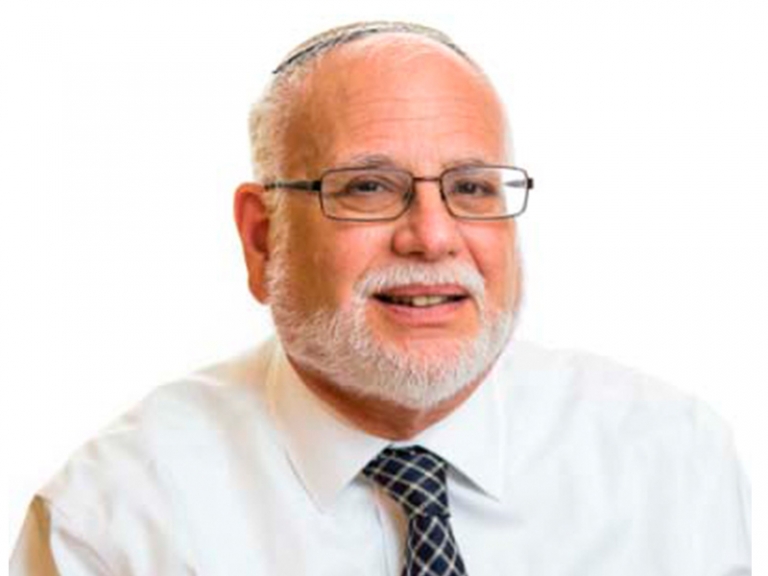D'var Torah by Dr. Kalman Stein, Interim Head of School

Dear Hebrew Academy Community:
Isn’t it interesting that the Parasha which includes the Revelation at Sinai is named after Yitro who, according the Midrash, “had worshipped every form of idolatry that existed in the world.” To be sure, the decision of the highest priest of idolatry that גדול ה" מכל האלקים—that Hashem is greater than all other gods was a significant Kiddush Hashem. But is there a lesson we can all learn from Yitro’s conversion?
Rashi tells us that Yitro, the most honored amongst the nations, came “to the wilderness to hear words of Torah.” It would be interesting to know something about the spiritual/psychological/intellectual process which led Yitro to give up his exalted place of honor. But the Torah tells us only:
“וישמע יתרו --Yitro, the Priest of Midian, the father-in-law of Moshe, heard about all that God had done for Moshe and to His people, Israel; that Hashem had taken Israel out of Egypt.” Rashi simply comments “מה שמועה שמע ובא?--What news did he hear which led him to come: the splitting of the sea and the battle with Amalek.” Not all that helpful. After all, as we say each morning in אז ישיר everyone heard about the miraculous Exodus and Kri’at Yam Suf: “Nations heard and trembled; terror gripped the inhabitant of Philistia. The leaders of Edom were dismayed; the people of Canaan melted away.” What is Rashi teaching us when he asks מה שמועה שמע ובא?
Let’s go back to last week’s Parasha, to the account of the splitting of the sea and let’s try to get into the minds of the Egyptians. If the nations who heard about the events in Egypt were trembling we can only imagine how the Egyptians were feeling. Just a week before they reached the Israelites at the sea they had experienced the Killing of the Firstborn during which there had been a death in every single Egyptian home.. They had been so terrified that they had forced Pharaoh to expel Bnai Yisrael immediately. They had barely been finished sitting Shiva and they are already chasing the Israelites to force them to return?
And then more miracles at the sea. An unnatural wind begins to blow and the waters split. The Jews begin crossing on dry land and the Egyptians chase after them? Did not one Egyptian soldier stand up and say, “Hey, guys, are you idiots? Don’t you see we are being led into another disaster? Haven’t we seen the power of their God?” Is it possible that not even one platoon figured this out and chose not to plunge into the sea? Then, as the Egyptian chariots entered the temporarily dry seabed not only did the wheels get stuck but, Rashi writes, the seabed turned so hot that the chariots caught fire and their riders began to disintegrate in the heat. Even then it seems none of the Egyptians, not even the ones who entered the sea last and were closest to home, chose to desert and make their way back to the Egyptian side of the sea.
What were the Egyptians thinking? When Moshe and Aharon first demanded that Pharaoh allow the Jews to leave his response had been, “Who is this Hashem whom I should obey…I don’t know Hashem.” Pharaoh and his people had great faith, but it was great faith in themselves to which they were completely subjugated. So while Bnai Yisrael observed God’s miracles and understood how wrong the Egyptians were, nothing, not even that which they saw transpiring before their eyes and beneath their feet, could convince the Egyptians that there was an omnipotent God who rules the world.
The surrounding nations panicked and they trembled; but like the Egyptians they learned nothing, did not change. They heard the same news that Yitro heard, spent a couple of days worrying, and then went back to their normal routine. Only one person heard the news and was transformed by what he had heard. That’s the message of the Midrash quoted by Rashi: While everyone else just heard, Yitro heard and chose to come to the wilderness to hear words of Torah.
We all see and experience a great deal. We are surrounded by so many manifestations of God’s kindness and mercy. In our own communities we experience the bravery and selflessness of neighbors and friends. The nightly news and our mailboxes are flooded with stories and appeals about the heartbreaking needs of others in our community, in Israel and throughout the globe. Does all of this do more than shake us up or inspire us for a few hours? How many of us actually hear and then act appropriately as Yitro did?
Dr. Kalman Stein
Interim Head of School

